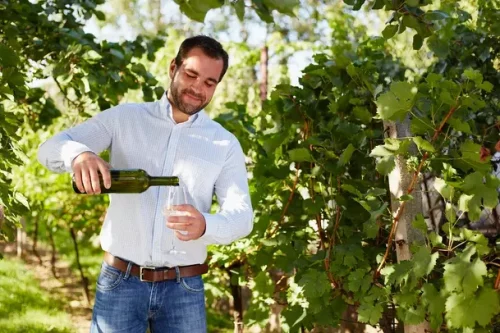Biden-Harris Administration Kicks Off National Recovery Month with Walk for Recovery and Gallery of Hope

American Addiction Centers (AAC) is committed to delivering original, truthful, accurate, unbiased, and medically current information. We strive to create content that is clear, concise, and easy to understand. The handbooks are full of tools, exercises and practical information that you can apply immediately. All proceeds go to support our fight against the addiction epidemic in America. Shift perspective to see relapse and other “failures” as opportunities to learn. Cravings diminish and disappear in time unless attention is focused on them.
Follow Mayo Clinic
Sarah’s road to recovery was fraught with challenges, including multiple relapses. But with each setback, she learned valuable lessons and strengthened her resolve. Today, Sarah has been clean for seven years and works as a recovery coach, helping others find their way out of the darkness of addiction. Sarah’s journey began in https://ecosoberhouse.com/ her late teens when she first experimented with opioids to numb the pain of childhood trauma. What started as occasional use quickly spiraled into a full-blown heroin addiction that consumed her life for over a decade. Personal narratives have an extraordinary power to inspire change and ignite hope in those still struggling.

© 2024 Harvard Health Publishing® of The President and Fellows of Harvard College
The purpose of the Hispanic/Latino Behavioral Health CoE is to advance the behavioral health equity of Hispanic/Latino communities. The Assistant Secretary for Mental Health and Substance Use Dr. Delphin-Rittmon speaks to the millions reclaiming their lives from substance use and mental health conditions. Many, though not all, self-help drug addiction recovery support groups use the 12-step model first developed by Alcoholics Anonymous. Self-help support groups, such as Narcotics Anonymous, help people who are addicted to drugs. Withdrawal from different categories of drugs — such as depressants, stimulants or opioids — produces different side effects and requires different approaches.
Shots – Health News
For diagnosis of a substance use disorder, most mental health professionals use criteria in the Diagnostic and Statistical Manual of Mental Disorders (DSM-5), published by the American Psychiatric Association. Sober living homes provide a safe, supportive place to live while you’re recovering from drug addiction. They are a good option if you don’t have a stable home or a drug-free living environment. Different types of medications may be useful at different stages of treatment to help a patient stop abusing drugs, stay in treatment, and avoid relapse. Additionally, medications are used to help people detoxify from drugs, although detoxification is not the same as treatment and is not sufficient to help a person recover.
Today, there are hundreds of such organizations throughout the United States. That includes offering interactive, online seminars; pilot grant funding; research mentoring programs; help with designing and testing new measures; as well as collecting and sharing existing measurement resources. That is becoming a key metric for making these supports widely available through expanded public or private funding, or for linking the services to healthcare systems.
Health Reporting in the States

Others find it painful, difficult, and frustrating, sometimes needing many attempts before achieving their goal. Still, others discover new sides to themselves during the quitting process (a greater capacity for compassion, for example). Once you understand your triggers, you can put things in place to reduce the chance of relapsing again. You can then apply what you learned from the first time you quit or cut down to be more successful next time. Either way, it’s a good idea to let them know of your goal and what they can do to support it (even if that means taking a break from the friendship for a time).
- He runs a support group for others dealing with co-occurring mental health and substance use disorders, offering hope and practical advice based on his own experiences.
- It may be done by family and friends in consultation with a health care provider or mental health professional such as a licensed alcohol and drug counselor, or directed by an intervention professional.
- More than anything, reoccurrence of use may be a sign that more treatment or a different method is needed.
- Surround yourself with people who support your sobriety, not those who tempt you to slip back into old, destructive habits.
Avoid Relapse

With supportive resources and the right treatment approach, you can overcome the physical and mental challenges you face in order to recover. People continue to engage in harmful behaviors despite negative consequences because addiction changes the brain’s reward system, which increases the desire for the substances or experiences. These changes in the brain also affect impulse control and judgment, which makes quitting that much more challenging. Like many other chronic conditions, treatment is available for substance use disorders. While no single treatment method is right for everyone, recovery is possible, and help is available for patients with SUDs. SAMHSA recently awarded $68 million in grants for suicide prevention and mental health care programs to address the U.S. mental health crisis and prevent suicide.
- Different types of medications may be useful at different stages of treatment to help a patient stop abusing drugs, stay in treatment, and avoid relapse.
- Detoxification alone without subsequent treatment generally leads to resumption of drug use.
- Even people with severe and chronic substance use disorders can, with help, overcome their illness and regain health and social function.
- The change destabilizes the adaptation the family has made—and while the person in recovery is learning to do things differently, so must the rest of the family learn to do things differently.
For this reason, it is a good idea to talk to a doctor about the best way and the best place to quit a substance. People who have a substance use disorder often find that overcoming it is more challenging than they expected. They may feel that addiction is a myth and they can quit any time they want or that they are an exception to the rule. This can also occur with behavioral addictions involving activities such as eating, sex, gambling, shopping, and exercise. Recovery support resources can be found within recovery organizations at the local, state, and national levels.
